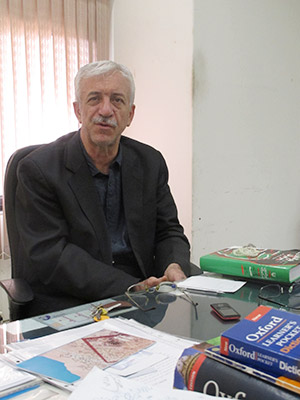Telephone Interview (Inaccessible)
Morteza Nouraie (PhD)
Translated by Natalie Haghverdian
2019-1-8
Undoubtedly, the style and mechanism of the active interview is formed on the face-to-face conversation circuit. While in telephone communications such dialogue never occurs.
In the first place, it is recommended to avoid telephone interview as the sole methodology to conclude a project and to be used parallel with active (face to face) interviews as a complementary measure and shall not form the basis of an independent study; the telephone interview may interrupt the connecting loop of the interviewer and the interviewee and disrupt maximum understanding.
In general, reports show that interns' responses to inaccessible interviews were not positive and that they considered face to face interviews more useful and effective. At the same time, to some extent, it is possible to practice telephone oral history interviews with a familiar person and determine it reliability and extend of questions to be asked. In some cases, oral history projects may inevitably have to be urgently negotiated on the phone, and/or to foster the grounds for a dialogue or to complete some missing aspects in which case the telephone methodology is more efficient and easier.

Taking into account the limitations and pathology of an inaccessible interviews, the researcher should ensure that the appropriate grounds are fostered for the telephone conversation. First and foremost, a written permission of the interviewee's consent shall be secured, which is important for the future of the project. On the other hand, the process of telephone interviewing is somewhat different than an active interview, so for example, the questions should contain one subject at the time for the narrator to have them in mind and respond. In addition, other aspects and questions shall be taken into consideration for further certainty:
- Is the hearing of the interviewee intact? Do they have enough time for telephone conversation? Is it possible to maintain the time frame of an active interview (approximately two hours) in a telephone interview? Is the memory of the interviewee conducive in the subject matter?
- The goal and objective of the interview should be clear; is the interviewee content with telephone interview?
- Time frame for the narrator or the interviewee; like active interview, sufficient time shall be dedicated to each questions for the interviewee to think and interact; don’t you want to add anything? Does the interview receive a clear and uninterrupted voice? Isn’t there any problems with the phone set or the line?
- Attention should be paid to the voice of the narrator or pauses; these are auxiliary signs which are taken into consideration in an active interview as body language.
It is worth mentioning that submission of documents during the interview is of vital importance. Usually, during an active interview the narrator might refer to proof documents or pictures to verify his/her argument and show them to the interviewer; which is an attempt to validate the interview. Hence, during a telephone interview, in case of claim of presence of any document the interviewer shall request such documents to be submitted.
In general, telephone interview, independently, might function as a pre-interview. While recording the dialogue, which is formerly announced to the interviewee, it is possible to provide a brief description on the subject matter, timing and location and duration of the interview which is very effective in the process. Also, such communication provides an experience to conduct face to face interview and give a notion of the expressions, dialect and tone of the interviewee for the future face to face interview.
Number of Visits: 4407








The latest
Most visited
How to send Imam's announcements to Iran
In the first part, the issue of funds, Hajj Sheikh Nasrallah Khalkhali - who represented most of the religious authorities - was also the representative of Imam. In Najaf, there was a money exchange office that cooperated with the money exchange offices in Tehran. Some of the funds were exchanged through him.Operation Beit al-Moqaddas and Liberation of Khorramshahr
After Operation Fat’h al-Mobin, we traveled to Kermanshah and visited Sar-e-Pol-e-Zahab before heading to Ilam. During Operation Beit al-Moqaddas, the 27th Brigade was still receiving support from the West. We maintained contact with individuals who had previously worked in Area 7 and were now leading the brigade. It was through these connections that I learned about Operation Beit al-Moqaddas.Memoirs of Hujjat al-Islam Reza Motalebi
Hujjat al-Islam Reza Motalebi is a cleric from Isfahan. Before the revolution, he was the imam of the Fallah Mosque – which was later renamed Abuzar Mosque. By his presence and efforts, Abuzar Mosque soon became a base for supporters of the Imam and the revolution. After the victory of the revolution, he played a role in uniting forces and maintaining political vitality in southwest Tehran.The Necessity of Receiving Feedback in Oral History
Whenever we engage in a task, we naturally seek ways to evaluate our performance — to correct shortcomings and enhance strengths. Such refinement is only possible through the feedback we receive from others. Consider, for instance, a basketball player whose shots are consistently accurate; should he begin shooting blindfolded, his success rate would rapidly decline, as he would be deprived of essential feedback from each attempt.

